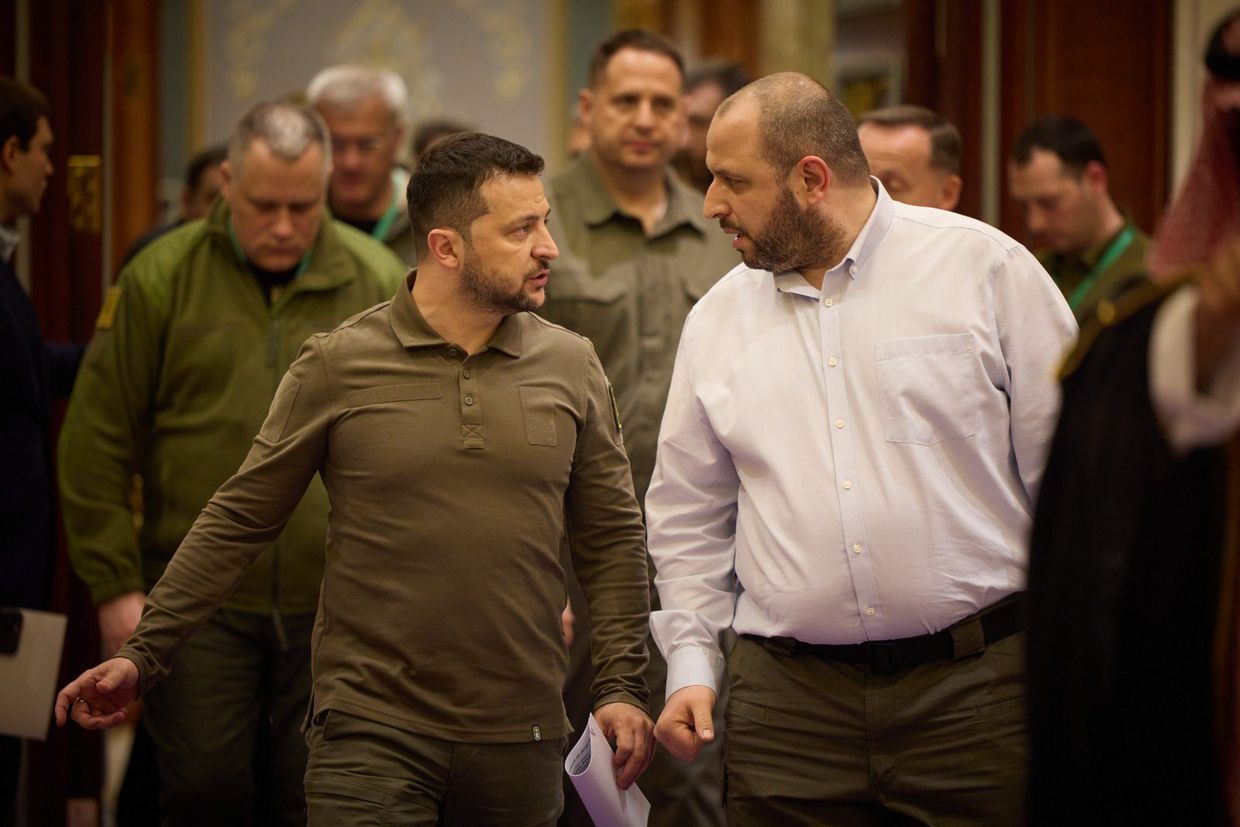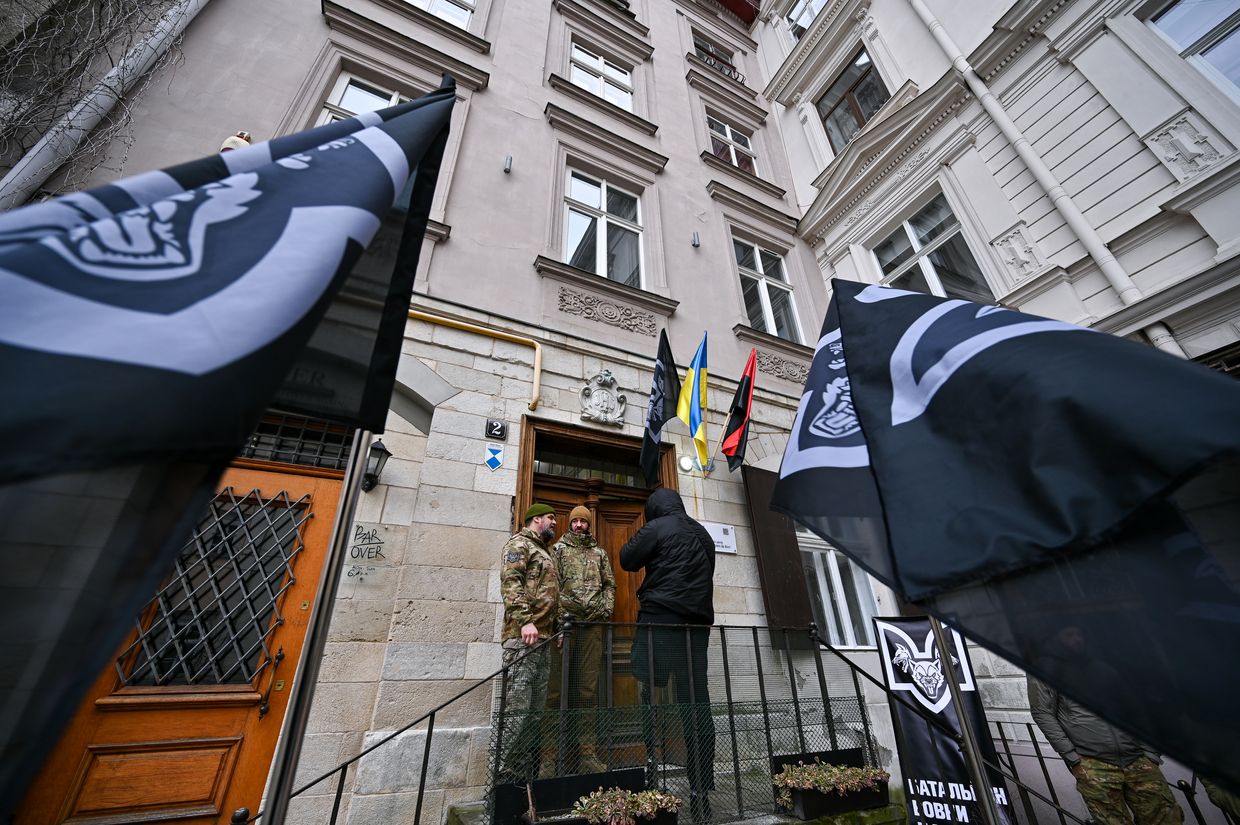Ukraine’s leadership is seeking to kickstart a mobilization campaign to replenish the ranks in 2024. For that, it needs an updated legal framework.
The government submitted a new draft of the mobilization law to Ukraine’s parliament on Jan. 30, more than two weeks after withdrawing its initial, contentious version.
Compared to the current legislation, the new draft introduces a fixed service period (36 months), after which a soldier can be demobilized; a younger minimum age for conscription (25 instead of 27); and additional restrictions that may be imposed for the summoned conscripts who don’t show up at recruitment centers.
"This bill defines transparent rules for the mobilization process, as well as the necessary regulation of the rights of military personnel and those liable for military service,” Ukraine’s Defense Ministry said in a statement.
Mobilization has been a key issue in Ukraine throughout the full-scale war, with Ukraine trying to recruit more men to refill the ranks after the battles of 2023. Multiple soldiers told the Kyiv Independent last week that the lack of manpower in their units was “catastrophic.”

Ever since President Volodymyr Zelensky said that the military command had proposed mobilizing 450,000 to 500,000 new conscripts in a December press conference, tensions have heightened in society over how the mobilization will be conducted in 2024.
A few days after Zelensky’s statement, the government submitted the first version of the new mobilization law on Dec. 25. This initial draft sparked controversy – with officials and legal experts warning that it contradicted the Constitution and violated human rights.
Human Rights Ombudsman Dmytro Lubinets said in a January interview with Ukrainian media outlet NV that the proposed draft gives more power to the Territorial Recruitment Centers, the military units that conduct conscription. And as per the Constitution, military units can’t be involved in restricting the rights of citizens, he added.
The draft law proposed a number of “temporary measures” to restrict the rights of conscripts or reservists who don’t arrive at the center within 10 days of receiving the summon.
Lubinets said that “it is nonsense when a military officer (at Territorial Recruitment Centers) decides that someone can’t sell their apartment (one of the proposed restrictions for those dodging the draft).”
The updated draft says that the recruitment centers can request a court to impose restrictions on the draft evader until he fulfills the requirements at the recruitment center.
The few accepted reasons for not showing up at the center would include illness, circumstances that made it impossible to arrive, or a death in the family.
The Jan. 30 draft, unlike the previous version, also proposes to exempt people with any kind of disability from military service. The previous version proposed to call up people with milder disabilities.
The new draft also proposes the mobilization of police officers and prosecutors for the first time.
The draft also proposes to introduce basic military training for men under the minimum conscription age of 25 – and optional training for women. Men between 18 to 24-years-old can choose when to undergo military training, which would be no longer than five months and they would be able to keep their jobs during training.
The bill also introduces a leave for the prisoners-of-war who return from Russian captivity – they are to receive 90 days of paid leave before they go back to service.
Another proposed measure focuses on Ukrainian men based abroad. When seeking consular services, such as renewing their passport, men of draft age will need to provide documents proving they are registered with a local recruitment center.
The bill likely won’t be passed quickly. The submitted draft is expected to go through “a significant number of amendments,” Yehor Chernev, deputy head of the parliament’s Committee on National Security, which will be reviewing the draft, told Ukrainian media outlet Liga on Feb. 1.
To be approved, the bill would need to pass two votes. The earliest time when the first vote can take place is on Feb. 7, according to Yaroslav Zheleznyak, a lawmaker from the Holos party.
Ukraine’s fresh mobilization drive comes as Western and Ukrainian media increasingly report the likely dismissal of Ukrainian Commander-in-Chief Valery Zaluzhnyi, all citing anonymous sources familiar with the matter.
Disagreements on mobilization could be part of the tensions between Zaluzhnyi and Zelensky’s administration. When making public comments on the upcoming mobilization campaign, Zelensky has shifted responsibility to the military commandment, saying that they didn’t provide him with proper reasoning for drafting nearly half a million new recruits in 2023. Zaluzhnyi hasn’t publicly said how many soldiers he wanted to draft.
Meanwhile, Russia expects to recruit about 400,000 people in 2024 to fight in its war against Ukraine, the Moscow Times reported, citing what it says is a high-ranking source.















